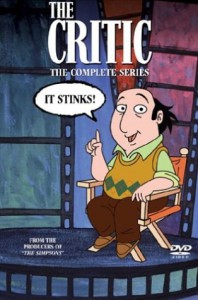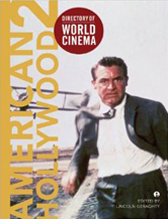
FEATURE: We’re No Supermen
As much as some of us film critics would like to think of ourselves as superheroes, leaping tall multiplexes and vanquishing the hack director of that latest prequel-remake, the truth is we’re pretty much just average, ordinary, everyday guys and gals. Yet in spite of that revelation (it came as a big surprise, right?) it struck me recently that perhaps there is some aspect of the superhero code that does ring true for us mortal critics.
Do you remember that scene in Spiderman? You know which one I’m talking about. It’s the one where Uncle Ben takes Peter aside and utters those life changing words, “With great power comes great responsibility”. Ok, so I’m taking poetic license with the whole ‘great power’ thing, but maybe you can see where I’m going with the part about responsibility. Is there “a duty of care” between critics and the films they review? And if so, to who does that duty of care extend? The studios? The filmmakers? What about our readers, the general film going public?
 Film critics as superheroes? Duty of care? I know, I know, you’re probably thinking, “Wow! This guy must be really hard up for things to write about this month”. Trust me, I am going somewhere with this so just bear with me for a moment. “But Josh”, I hear your say, “nobody really takes any notice of what those critics have to say. Most of the time they get it wrong anyway. Personally, I go to see a film whether those critics like it or not”. For those of you nodding your heads right now, well, lets just say I’m not going to try and change your minds.
Film critics as superheroes? Duty of care? I know, I know, you’re probably thinking, “Wow! This guy must be really hard up for things to write about this month”. Trust me, I am going somewhere with this so just bear with me for a moment. “But Josh”, I hear your say, “nobody really takes any notice of what those critics have to say. Most of the time they get it wrong anyway. Personally, I go to see a film whether those critics like it or not”. For those of you nodding your heads right now, well, lets just say I’m not going to try and change your minds.
For as much as we would like to consider ourselves the barometers of cultural opinion, the truth is that a film’s ultimate success (or failure) relies very little on the say-so of a critic. If it did, Titanic probably wouldn’t have grossed over a billion dollars and there would be more people talking about Pan’s Labyrinth right now rather than Epic Movie as the last film they went to see. Yet, in spite of our inability to part the box-office waters with one glimpse of a keenly written critique, there still exists a perception of the film critic as having a divine connection to the world of cinema: the ‘filmic word made truth’. One need only recall the outcry and disbelief that occurred a few years ago when then Age film critic Adrian Martin reassessed his opinion of Michael Mann’s Heat and published a second, more favourable review.
I’m paraphrasing here, but the sentiment at the time went along the lines of, ‘How could he change his mind? He’s a film critic. He supposed to know if the film is good or bad. Now, what I am supposed to think?’ I hate to spoil the illusion here, but what I’m about to tell you may shock: film critics are human…well, most of us anyway. You see, the masquerade of truth that underlies our reviews conceals a fairly unromantic picture of film criticism. For starters, there’s the shot turnaround between viewing and writing – which in some cases can be as brief as hours. Formulating a well-considered opinion on first viewing is not always the easiest of tasks. If it were none of us would ever return to the cinema to watch the same film again and come out with an altogether different perspective.
I remember a few years ago watching The Station Agent at the cinema and feeling somehow disappointed by the film’s ending. Watching it again recently I found myself utterly unable to reconcile that perception with the film’s final frames; the ending now seems perfectly apt. Such is the way that films change, or rather the way we, yes, all of us, change around film. I might add here that in my alter ego as an academic I now realise what a luxury it is to have four or five years to ponder a film within a PhD thesis, or decades as the case may be for a senior lecturer.
 And then there’s the whole ‘star ratings’ system that seems to have attached itself to film criticism. Can I ask you, when was the last time your read a review for an opera, ballet, theatre or an art exhibition that reduced the work to a series of arbitrary pictographs? I’ve never understood the compulsion of the star assessment. Ok, that’s a lie. When Miss Cremen gave my grade 2 assignment on zoo animals a big gold star I’m sure my heart raced like a 6 year old necking red cordial straight from the bottle. The point I’m trying to make here is that those stars don’t really mean anything, and they certainly don’t amount to truth. Ask many film critics about star ratings and most of them will tell you it’s bollocks. As much pleasure as it may bring to declare the latest 5-star masterpiece or rail against the 0-star ‘bomb’, films or any art for that matter, don’t really work that way.
And then there’s the whole ‘star ratings’ system that seems to have attached itself to film criticism. Can I ask you, when was the last time your read a review for an opera, ballet, theatre or an art exhibition that reduced the work to a series of arbitrary pictographs? I’ve never understood the compulsion of the star assessment. Ok, that’s a lie. When Miss Cremen gave my grade 2 assignment on zoo animals a big gold star I’m sure my heart raced like a 6 year old necking red cordial straight from the bottle. The point I’m trying to make here is that those stars don’t really mean anything, and they certainly don’t amount to truth. Ask many film critics about star ratings and most of them will tell you it’s bollocks. As much pleasure as it may bring to declare the latest 5-star masterpiece or rail against the 0-star ‘bomb’, films or any art for that matter, don’t really work that way.
Oh dear, look at the time. I just realised that I started this column by talking about responsibility and seem to have gotten sidetracked. Miss Cremen would not be pleased. The point I was trying to make in all this is that the film critic, though bound by various ‘artificial’ constraints, is not without considerations of duty. In any given critique there are numerous things to consider: How much plot should I reveal? Should I signal spoilers, or let the readers figure that out for themselves? If I dislike a film then to what degree should I foreground my response as indicative of something personal, or as a point of cultural distaste? If I enter a film with expectations, should I be lead by those, and should that be the basis for my response? (Marie Antoinette was framed by negative press long before its arrival in Australia and I would be lying if I said that my response to it wasn’t in some way shaped by those expectations). To what degree should my review examine a film in isolation, as existing in a kind of cultural vacuum, or as something that expresses some deeper ideological meaning, fantasy, desire, or anxiety?
The easy answer to these questions is that there is no easy answer. Sorry, but you knew that was coming, right? Suffice to say, as film reviewer Paul Harris does, that the role of the film critic is not to assume the position of the cultural executioner who takes delight in “pissing from a great height”. Instead, the ‘responsibility’ of the film critic, at least as I see it, is to initiate a conversation, not just between the filmmakers and audience, but between the often diverse and evolving perspectives offered by the film under review. Hardly the stuff of superheroes I know, but at least we’re ‘watching’ out for you.
One Response to “FEATURE: We’re No Supermen”
RSS feed for comments on this post. TrackBack URI





Love this write up. Keep on sharing. I’m a fan.